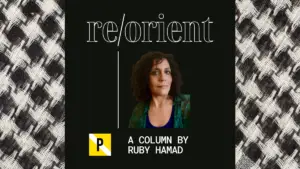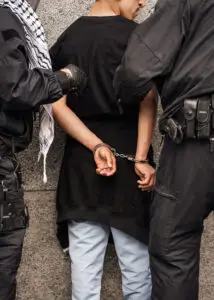
From The Milkmaid to Gangs Of Lagos: How Nigerian Filmmakers Are Using Cinema To Push Back Politically
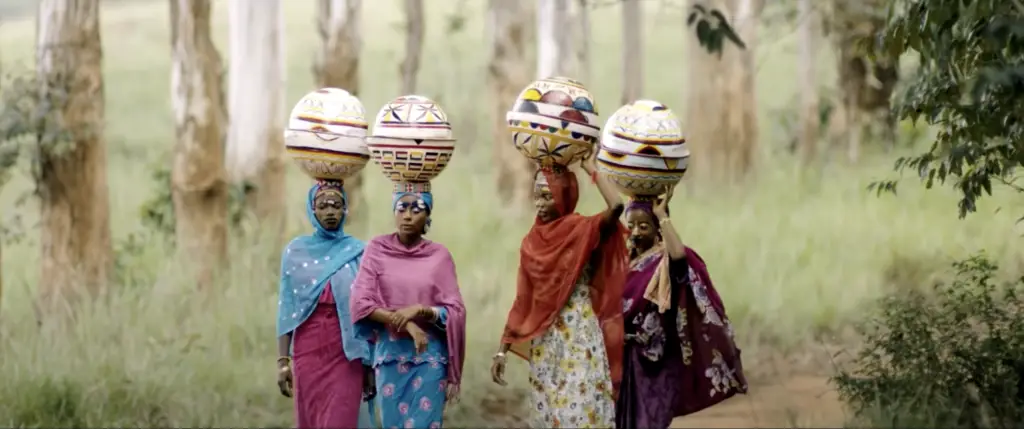
In 2020, Nigeria’s legislature proposed the Motion Picture Council of Nigeria (MOPICON) Bill, which would give the government the power to license filmmakers and revoke permits for content deemed “unfit for public consumption.” Though framed as a regulatory measure, critics warned it would institutionalize censorship, allowing officials to suppress films exposing corruption or state violence.
That same year, the National Film and Video Censors Board (NFVCB) heavily censored Desmond Ovbiagele’s Oscar-submitted film The Milkmaid (2020), claiming some scenes were too graphic or controversial. The film allegorizes the Boko Haram insurgency through the character of Aisha (Anthonieta Kalunta), a Fulani milkmaid searching for her sister in a terrorist camp.
Years later, censorship concerns resurfaced with Gangs of Lagos (2023). While the NFVCB could not ban the film since it was released on a streaming platform, it faced backlash for its portrayal of the Eyo Masquerade as a violent gang symbol, which cultural groups condemned as sacrilegious and a distortion of Lagos heritage. Though cultural misrepresentation was the official concern, the film’s depiction of politicians exploiting gangs for electoral violence drew deeper controversy.
The NFVCB evaluates films based on age ratings (PG, 12A, 15, 18, etc.), consumer advice & stipulated guidelines (such as drug use, horror, language, nudity, ritual, sex, sexual violence, theme, tribalism and racism, violence, or any content which could disrupt the peaceful state of the nation), language (English, ethnic languages, etc ), preview location, and producer details. With over 2,500 films produced annually and a $6.4 billion valuation, Nollywood has the reach to amplify silenced voices.
This is crucial in a country where speaking against oppression comes at a high cost. Investigative journalist Fisayo Soyombo, founder of the Foundation for Investigative Journalism (FIJ), for example, was arrested last year while reporting on illegal oil bunkering but was released after public outcry on social media condemned his unlawful detention.
Yet, filmmakers like Kemi Adetiba and Jade Osiberu use allegories to say what headlines cannot. Netflix’s entry into the Nigerian market has expanded this influence, streaming provocative titles like Òlòtūré (2020), an exposé on sex trafficking, and Shanty Town (2023), a series critiquing how politicians use proxies to handle their dirty work.
Fictional Plots with Clear Links To Real-World Issues In The Milkmaid (2020)
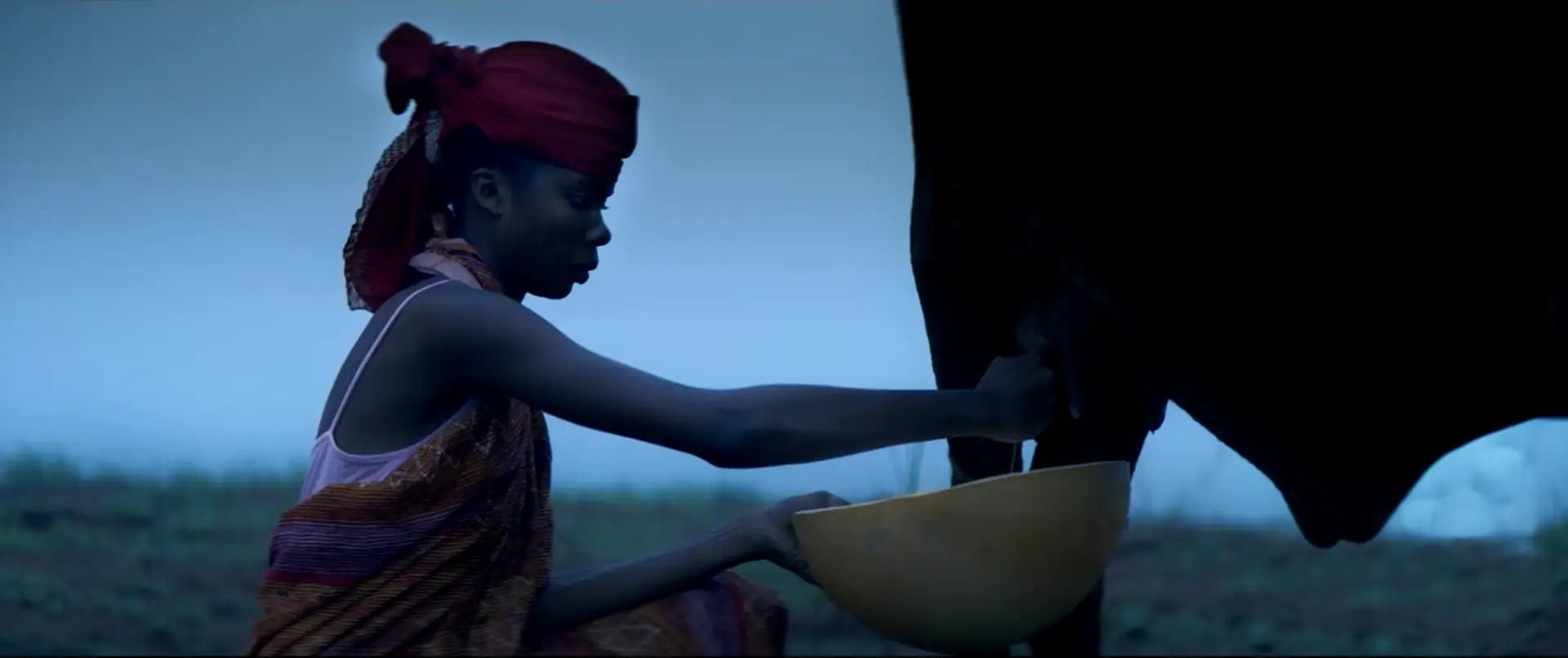
Instead of directly addressing political violence or godfatherism, some Nollywood films craft fictional plots that unmistakably reflect real-world issues. The Milkmaid (2020), written and directed by Desmond Ovbiagele, does exactly that.
Inspired by the two milkmaids on the ten naira note of the Nigerian currency, the film explores the plight of Aisha (Anthonieta Kalunta), a Fulani milkmaid caught in the cross-fire of insurgency and extremism in Northern Nigeria, where she must search for and rescue her younger sister by returning to the camp of her former captors. It is a fictionalized tale mirroring what could have been the story of the Chibok girls kidnapped by the Boko Haram militant group in 2014.
The Milkmaid depicts with biting realism the insecurity and psychological trauma experienced by countless Nigerians in the North.
One key moment is the attack on Zainab’s (Maryam Booth) wedding. The scene begins with a traditional Fulani ceremony—women in embroidered attire surround the bride, dancing and ululating to the rhythm of hand-held drums. The atmosphere is joyful and vibrant, but this celebration is violently interrupted when armed militants storm the village on motorcycles, wielding guns, machetes, and sticks.
They open fire on the crowd, killing villagers, burning homes, and abducting several people, including Zainab. The suddenness of the attack mirrors real-life incidents of insurgent raids in northern Nigeria.
Another scene captures the aftermath: a child kneels beside the lifeless body of a parent on a farm in a village reduced to rubble. Corpses litter the area. The child clings to the dead parent, sobbing. This moment shows the devastating reality for children orphaned by insurgent violence, a fate many Nigerians in conflict zones have faced.
Through these scenes, The Milkmaid not only reflects the physical destruction caused by terrorism but also captures the deep psychological trauma left on survivors. This includes women forced into marriages, children left without families, and entire communities shattered in an instant.
The film was heavily cut by the NFVCB, which claimed some scenes were too graphic or controversial. However, many believe the real reason was its sensitive subject matter—depicting insurgency, government failures, and the deep trauma caused by terrorism. In fact, despite the global attention the Chibok girls received, the government has often been defensive about its response to Boko Haram. The censorship was so severe that The Milkmaid, Nigeria’s second-ever Oscars submission, saw wider distribution in Cameroon and Zimbabwe than in its home country. Most Nigerians never got the chance to see it.
The NFVCB’s actions weren’t surprising. The board has a history of shielding government interests. In 2019, it temporarily banned Kayode Kasum’s Sugar Rush, citing expired approval. Many believed the real reason was the film’s unflattering portrayal of the Economic and Financial Crimes Commission (EFCC), where a fictional EFCC boss Mrs. Madueke (Omoni Oboli) is revealed to be a criminal.
Despite the censorship, The Milkmaid didn’t lose its message. It sidesteps explicit violence but drives home its point through raw emotion. In one scene, Aisha, reeling from the destruction of her village, pleads, “Let us go back to the way we were before all this.” Her militant husband replies, “We cannot. Nobody can.”
Another scene shows a group of women discussing their struggles. One of them says, “Our role as women cannot be only to cry and keep the household in the absence of men.” The dialogue is carefully measured, avoiding any politically charged statements or direct blame. On the other hand, some critics argue that it simplifies complex issues by portraying insurgents as one-dimensional villains. Others feel it leans more into personal tragedy rather than examining systemic failures in governance, security, and rehabilitation efforts. Despite limited screenings and viewer reviews, The Milkmaid won critical acclaim, sweeping five awards at the 2020 Africa Movie Academy Awards (AMAA), cementing its place as one of Nigeria’s most recognized films on insurgency.
Symbolism as Political Mirror In Shanty Town (2023)
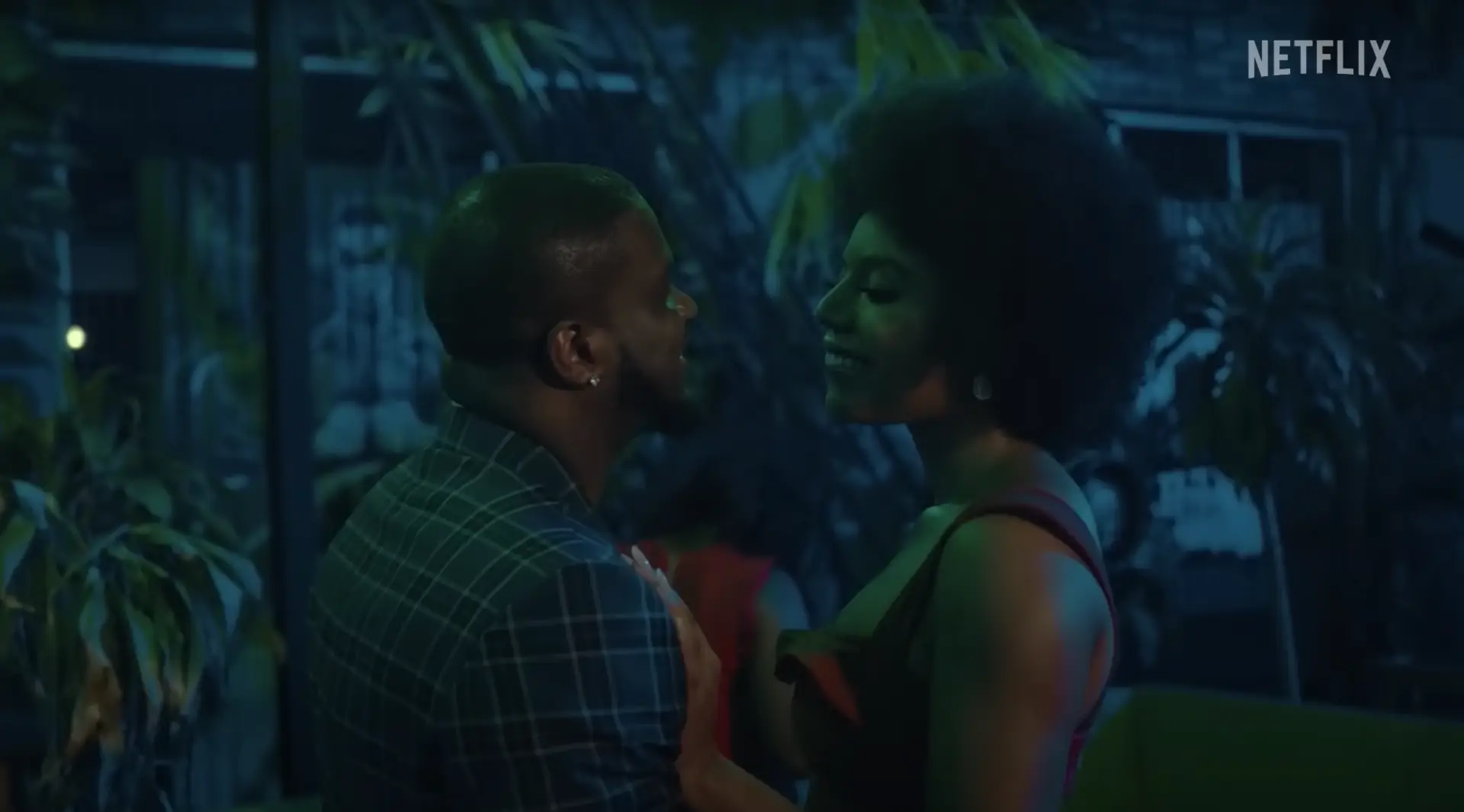
Released a month before Bola Tinubu’s controversial 2023 presidential victory, the Netflix series Shanty Town (2023) portrays a crime syndicate led by “Chief Fernandez” (Richard Mofe-Damijo), a political kingmaker and crime lord whose grip on Lagos’ underworld reflects Tinubu’s reputed “godfather” role in Nigerian politics.
Notably, Fernandez’s signature infinity cap mirrors Tinubu’s iconic accessory, turning it into a visual symbol of power that blurs the lines between governance and criminality. His role satirizes Nigeria’s entrenched political system, where figures like Tinubu are accused of wielding influence through patronage networks. In episode 2, Fernandez boasts about controlling much of Lagos and his ambition to dominate the entire city—an unmistakable similarity to Tinubu’s perceived hold over Lagos politics.
While the film never directly names Tinubu, its use of symbolism delivers a clear critique of Nigeria’s political sector. The film’s coded dialogue adds another layer of critique. When Fernandez proclaims, “This city thrives on loyalty, not laws,” Nigerian audiences immediately connect it to Tinubu’s infamous Emilokan (“It’s my turn”) slogan, which symbolizes his sense of entitlement to power. In Shanty Town, this phrase is reimagined as a critique of tyranny showing how powerful figures manipulate the system to maintain control. The line by Fernandez implies that influence and personal connections (not fairness or democratic processes) determine power in Nigeria, reinforcing the theme of Emilokan as a justification for unchecked rule.
The relationship between Fernandez and his enforcer, Scar (Chidi Mokeme), mirrors the alleged ties between Nigerian politicians and political thugs like MC Oluomo, a known Tinubu ally. Scar, as a gang leader enforcing Fernandez’s will, reflects the real-world role of enforcers in Nigerian politics.
But Shanty Town avoids outright accusations, instead using metaphors to make its point without risking censorship. With 27.3 million hours viewed on Netflix, it became the most-streamed African Original in Nigeria.
Allegory, A Tool For Exposing Power and Poverty in Gangs of Lagos (2023)
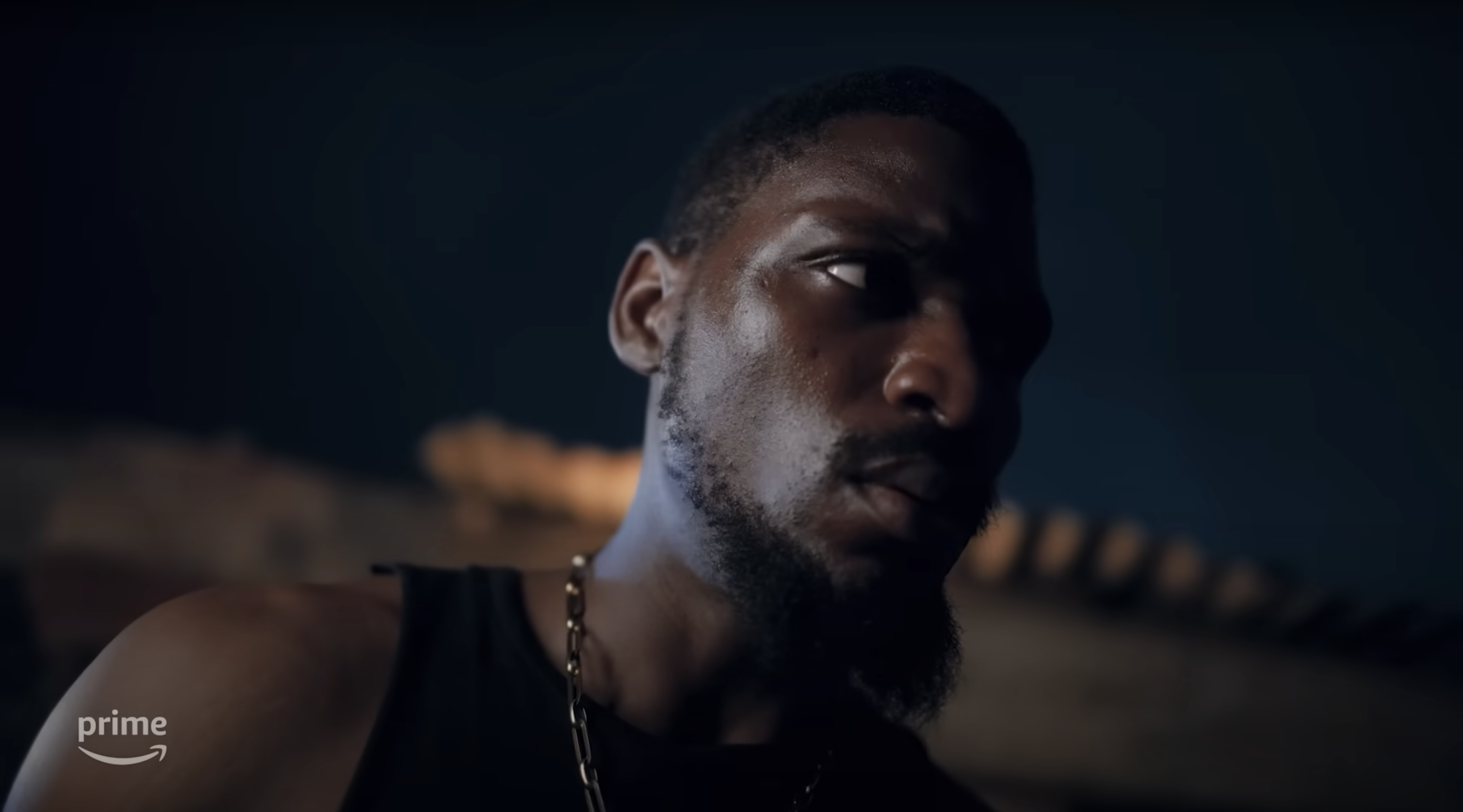
The film introduces Kazeem (Olarotimi Fakunle), a ruthless gang leader who rises to become ‘Eleniyan’ (boss of all bosses) after Nino’s (Tayo Faniran) death. Kazeem represents the corrupt influence of political figures who use gangs to hold power. This mirrors real-world accusations against Bola Tinubu, who allegedly used thugs for electoral control. The movie suggests that political leaders rely on these criminal networks to secure their ambitions, just as Kazeem used Obalola (Tobi Bakre) to fuel his own aspirations.
Through characters like Obalola (Tobi Bakre) and Ify (Chike Osebuka), Osiberu shows how poverty and systemic failure push young people into crime. Obalola and Ify, childhood friends from the Ìsàlẹ̀ Èkó slums of Lagos, get caught in gang wars. Obalola rises to become a street king, mentored by the ruthless Kazeem, while Ify is killed in a shootout. Obalola stays loyal to Kazeem, helping him with his political ambitions to run for governor.
The film’s use of the Eyo masquerade sparked backlash, with critics accusing it of trivializing a sacred tradition. The Eyo festival, also known as the Adamu Orisha play, is a deeply respected cultural heritage of the Isale Eko community, historically linked to honoring the dead and guiding spirits. In Gangs of Lagos, however, the masquerade is depicted as a cover for gang violence, first as a disguise for an assassin, then as a front for armed men who stormed a party and opened fire. The Isale Eko Descendants Union and the Lagos State Government voiced concerns about misrepresentation.
However, Osiberu likely intended to use the Eyo to symbolize how politicians manipulate even the most revered traditions for their gain, rather than disrespecting the culture. In the film, gangsters exploit the Eyo’s sanctity to hide their criminal activities, much like how politicians use people for political leverage. While the portrayal might have caused offense, especially during the election period, viewers appeared to understand that Osiberu’s message was more about critiquing the abuse of power than attacking the tradition itself.
Cinematically, Gangs of Lagos combines gritty, Scorsese-inspired crime drama with local authenticity. The movie shows a big difference between rich and poor people in Lagos. We see this through exciting scenes of fights in the streets and fancy parties for important people. The movie uses music like Fuji and the sounds of the city to make it feel real and connected to Lagos. Interestingly, the police are never seen in the movie. While Gangs of Lagos faced cultural pushback, the film earned a total of ₦230 million in Nigeria, and it also benefited from the global reach of Amazon Prime Video, bypassing local censorship and reaching a wider audience.
These films aren’t the only examples. Some, like The Figurine (2009), use folklore of a cursed statue to symbolize how politicians exploit superstition to stay in power. Others hide criticism in humor, like The Wedding Party (2016), which uses humor to satirize class differences while exposing entrenched inequalities.
The 2018 Nigerian political drama If I Am President, directed by Bright Wonder Obasi, tackles corruption, impunity, and the fight for justice in Nigeria. While it doesn’t directly mention the #EndSARS movement, its focus on systemic issues like corruption and accountability hits close to the core of the 2020 protests. The message is clear without being too direct. These filmmakers understand their audience—they use culture, family, and tradition to tell stories that trigger deep conversations while staying under the radar of censorship.


